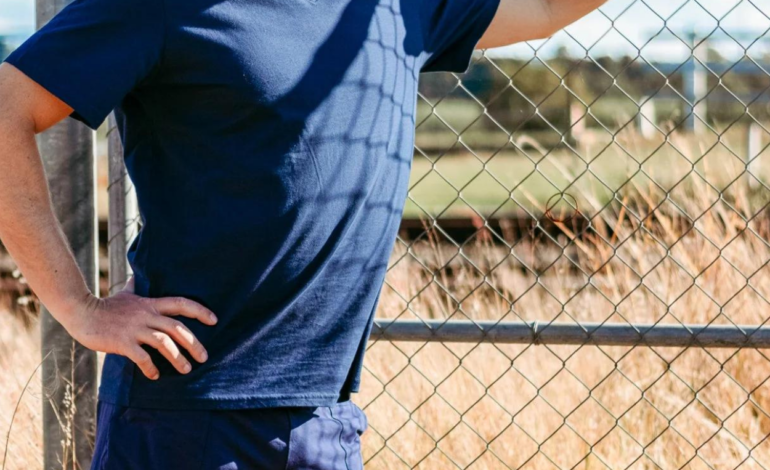By Wendy Watson
What is “Fatherhood” and how do you define it?
In the grand tapestry of human experience, few roles carry as much weight and expectation as that of the father figure. Across cultures and throughout history, fathers have been assigned various roles and responsibilities, each shaped by the norms and values of their time. From the stern patriarch of yesteryears, whose authority was unquestioned and whose primary role was that of a provider, to the nurturing modern dad, who embraces emotional vulnerability and actively participates in child-rearing, society has woven a complex web of expectations around what it means to be an ideal father. These expectations are often deeply ingrained in cultural narratives, perpetuated through media portrayals, literature, and social norms. However, beneath the surface of these societal constructs lies a deeper truth: fatherhood is as diverse and multifaceted as the individuals who inhabit it. Each father brings a unique set of experiences, beliefs, and values to the table, shaping their approach to parenting in ways that defy easy categorization. It is within this rich tapestry of fatherhood experiences that we find the true essence of paternal identity—a complex interplay of traditional and innovation, authority and compassion, strength and vulnerability.
As my father and I have grown older, we have increasingly opened up to each other about our marriages, divorces, and the childhood experiences that influenced our decisions. This openness has allowed us to discuss his perspectives as both a parent and a man, and my experiences as a child and a woman.

Through these heartfelt conversations, we have shared not only our life stories but also the mindsets and emotional situations that shaped our paths. This exchange of vulnerabilities has fostered a deeper understanding and mutual respect between us. By being open and vulnerable, we have bridged gaps that once seemed insurmountable, creating a stronger bond than I ever thought possible. This newfound connection has enriched our relationship, allowing us to support and appreciate each other in ways we never did before. It’s a testament to the power of honest communication and the profound impact it can have on strengthening familial ties.
Our societies often paint a portrait of the ideal father figure – strong, stoic, responsible, logical, analytical, and the primary provider for the family. This image, deeply ingrained in our cultural psyche, sets the stage for the expectations placed on fathers. From the earliest stages of childhood, boys are often taught to emulate this idealized version of fatherhood, perpetuating the myth of the perfect patriarch. Fathers, in turn, internalize these expectations, striving to live up to the standards set by society.
While my father embodies many of these admirable qualities, he struggled with standing up for himself, particularly in his relationships. As a child, I perceived his constant “lecturing” as overwhelming, and I saw his inability to assert himself in those relationships as a sign of weakness, especially when it affected our family dynamic. However, when I learned about the abuse he endured from his own father and the reasons behind his chosen parenting approach, everything began to make sense. Understanding his past and the context of his actions allowed me to see his perspective in a new light. This newfound insight led to a profound shift in my impressions, mindset, and emotions regarding my childhood experiences with him. It transformed my view of his actions from frustration to empathy, ultimately strengthening our relationship.
So, what happens when they don’t embody this image? When fathers deviate from the traditional mold – whether by expressing vulnerability, prioritizing emotional connection over financial success, or challenging traditional gender roles – they are often met with skepticism or even disdain. In a society that equates strength with stoicism and authority with emotional detachment, these deviations from the norm can be viewed as signs of weakness or incompetence. Yet, the truth is far more nuanced.
Just because a father doesn’t fit the narrow confines of the idealized father figure doesn’t diminish his love for his children or his dedication to raising them into compassionate, responsible adults. In fact, it is often these fathers who challenge societal norms and pave the way for more inclusive and authentic expressions of fatherhood. By embracing their unique strengths and vulnerabilities, these fathers demonstrate that there is no one-size-fits-all approach to parenting and that love knows no bounds.
In the partnership of parenthood, the ability for a father to show vulnerability to the mother of their child is crucial for building trust, fostering intimacy, and promoting mutual support. When fathers allow themselves to be vulnerable with their partners, they create a space for open communication and emotional connection. By sharing their fears, insecurities, and struggles, fathers not only demonstrate their trust in their partners but also show that they are willing to share the joys and burdens of parenthood together. This vulnerability strengthens the bond between parents and lays the foundation for a supportive and nurturing family environment.
Despite my parents being divorced, the vulnerability and mutual understanding my parents showed each other were truly admirable. I remember feeling angry and frustrated when my father couldn’t pay child support, and I often pleaded with my mom to take him to court for not fulfilling his financial obligations and supporting his children. From my perspective as a child, it seemed like a straightforward issue of fairness and responsibility. However, my mother saw the situation differently. She understood his financial struggles and chose not to pursue legal action against him. Her empathy and willingness to understand his circumstances went beyond mere tolerance; it was a demonstration of profound compassion and respect for him as a person and as the father of her children.
By recognizing the strength inherent in vulnerability, fathers not only deepen their connections with their loved ones but also contribute to a more compassionate and empathetic world. This acknowledgment paves the way for a redefinition of fatherhood, one that acknowledges the diverse and multifaceted nature of paternal roles. Just as fathers display vulnerability in unique ways, so too do they embody the full spectrum of human experience. From challenging traditional gender norms to defying societal expectations, fathers enrich our lives in countless ways. Embracing this diversity allows us to break free from limiting stereotypes and honor the individuality of each father’s journey.
The ideal father figure is not a one-size-fits-all mold. In reality, fathers come in all shapes, sizes, and temperaments. From stay-at-home dads challenging traditional gender norms to single fathers defying societal expectations, the landscape of fatherhood is as diverse as the individuals who inhabit it. By embracing this diversity, we can break free from limiting stereotypes and celebrate the myriad ways in which fathers enrich our lives.
From my experience, men often internalize their emotions, mindsets, and beliefs until they feel safe enough to open up and share. With the weight of societal expectations defining their roles, fathers frequently find themselves grappling with the complexities of parenthood during the quiet moments
between diaper changes and bedtime stories. They wrestle with the weight of responsibility, the fear of inadequacy, and the relentless pursuit of balance. Beyond the tangible tasks of parenting, fathers are engaged in a profound internal struggle, seeking harmony between their earthly duties and a deeper, spiritual calling. They are torn between the demands of the material world and the yearnings of their souls. In these moments of tension, fathers face a crucial choice: to succumb to societal pressures or to heed the whispers of their inner wisdom.
Yet, amidst the chaos and uncertainty, fathers find solace in the profound connection they share with their children. In the tender embrace of a child’s arms, fathers discover a love that
transcends words – a love that touches the deepest recesses of their being. It’s in these moments of intimacy and vulnerability that fathers catch a glimpse of the divine, experiencing a sense of awe and reverence for the miracle of life.
In the sacred space of fatherhood, the mundane is transformed into the miraculous. The simplest of moments – a shared laugh, a comforting hug, a whispered “I love you” – become sacred rituals, weaving a tapestry of love and connection that stretches across generations. In these moments, fathers transcend the confines of time and space, touching the divine in the everyday.
My father gives the best hugs on the planet. He is so elated to see me that he hugs me like it’s been a lifetime between visits. His hugs are not just brief embraces; they are heart-to-heart, all-encompassing bear hugs that envelop my entire being.
These hugs radiate warmth and love, making me feel profoundly cherished and valued. The genuine joy and affection he expresses through these embraces create a sense of connection that words alone cannot convey. In those moments, all the distance and time between us melt away, leaving only the pure and unconditional love that defines our relationship.
To embrace fatherhood in a complex world is to embark on a journey of transformation – one that challenges the status quo and embraces the full spectrum of fathering experiences. It requires us to dismantle the rigid constructs of masculinity and embrace a more feminine inclusive and compassionate vision of parenthood. By fostering open dialogue, promoting inclusivity, and providing unwavering support for fathers from all walks of life, we can create a society that honors the sacredness of fatherhood in all its forms.
Let us celebrate the diverse roles of fatherhood and embrace the myriad ways fathers embody the true essence of parenting. These men love their children with unwavering devotion, willing to move mountains and bend the ends of the universe for them. Their love transcends time and space, resonating across generations and leaving an indelible mark on the hearts of their children. In the depths of their souls, fathers are spiritual beings on a journey of love, growth, and self-discovery. As they navigate the complexities of human existence, fathers draw from an infinite wellspring of love, guiding them on their path with grace and wisdom. By honoring the sacred essence of fatherhood in all its forms, we recognize the unique spark within each father, illuminating the world with their radiant light.
In doing so, we honor the sacred journey of fatherhood – a journey characterized by love, growth, and transcendence. It’s a journey marked by moments of joy and sorrow, triumph and defeat, yet through it all, fathers persevere, driven by an unshakeable commitment to their children and the profound bond they share. In embracing the diversity of fathering experiences, we recognize the inherent beauty and complexity of the human experience, celebrating the myriad ways in which fathers enrich our lives and shape the world around us.

Reflection
Reflect on your values, engage in open dialogue, and embrace flexibility. By taking these steps, we can cultivate a more fulfilling and authentic experience of fatherhood. Join us on this journey of self-discovery and growth as we embrace the complexities of paternal roles together:
- Reflect on Personal Values and Beliefs: Take time to reflect on your own values, beliefs, and experiences surrounding fatherhood. Consider how your upbringing, cultural background, and societal influences have shaped your expectations of paternal roles. By gaining awareness of these influences, you can begin to differentiate between external expectations and your authentic desires as a father.
- Open Communication and Dialogue: Engage in open and honest communication with your partner, family members, and support network about your paternal expectations. Share your thoughts, fears, and aspirations, and listen empathetically to their perspectives as well. Creating a space for open dialogue allows for mutual understanding and support, fostering healthier and more realistic expectations of fatherhood.
- Embrace Flexibility and Adaptability: Recognize that fatherhood is a dynamic and ever-evolving journey, and it’s okay for expectations to shift and change over time. Embrace flexibility and adaptability in your approach to fatherhood, allowing yourself to respond to the unique needs and circumstances of your family. By letting go of rigid expectations and embracing the ebb and flow of parenthood, you can cultivate a more fulfilling and authentic experience of fatherhood.





